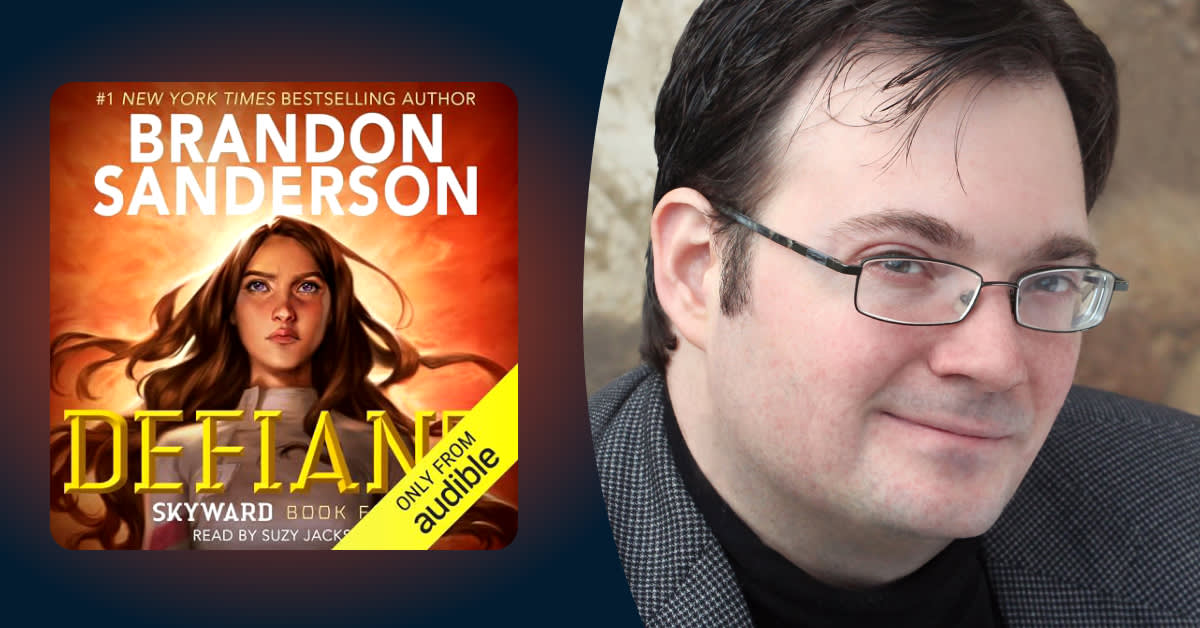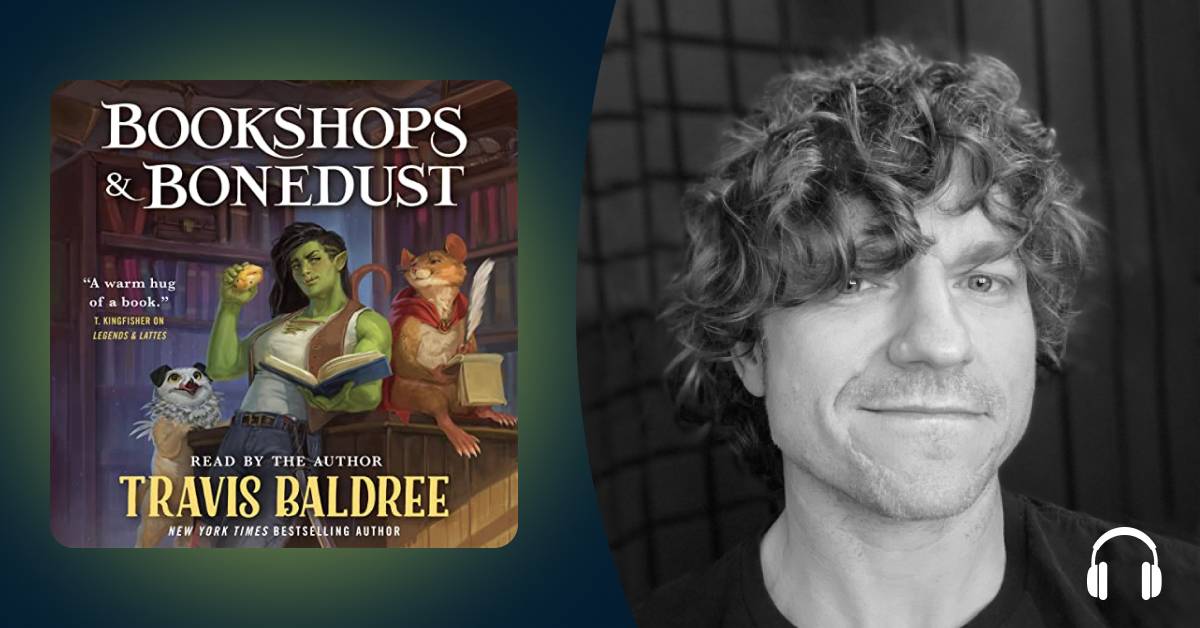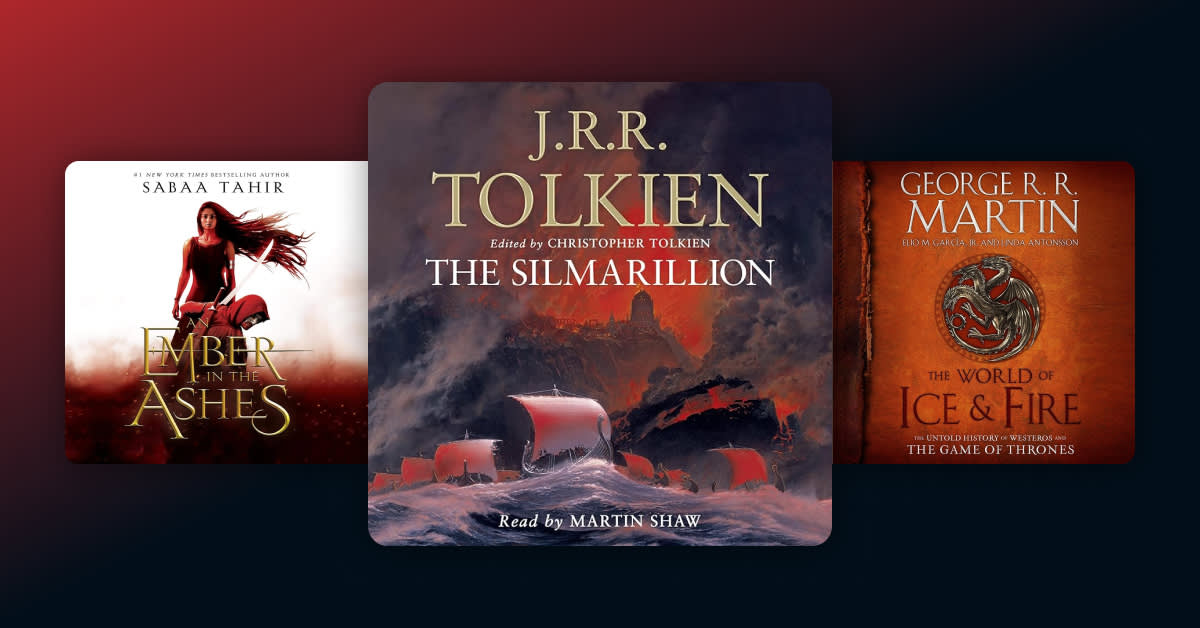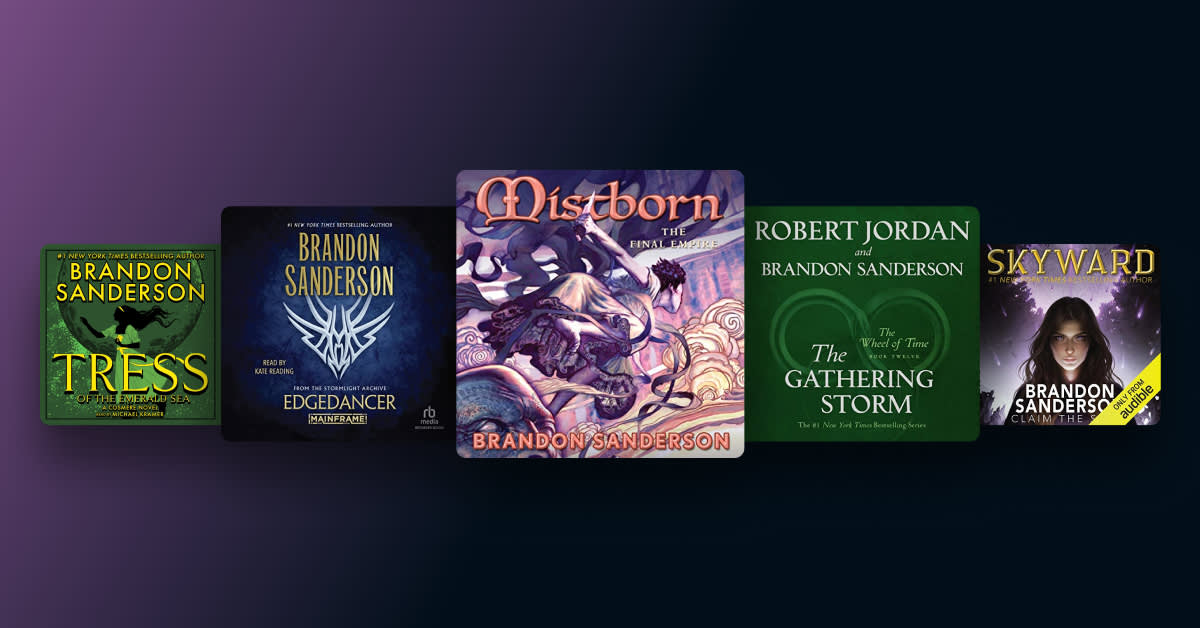Is there a modern fantasy author more versatile than Brandon Sanderson? Across his 50+ written works, he’s dabbled in sword & sorcery, mystery, a superhero trilogy—not to mention finishing a little series called Wheel of Time. His Skyward series takes listeners to the stars in an epic YA space opera, narrated brilliantly by Suzy Jackson, who returns for the newest installment, Defiant. In our recent conversation, Sanderson opened up about what it was like to craft that series and its young heroine, how he juggles the myriad storylines he’s working on, and the “art” of narration.
Note: Text has been edited and does not match audio exactly.
Sam Danis: The hero of the Skyward series is Spensa, a teenage girl with the weight of the galaxy on her shoulders. What do you do to get into the head of the young character?
Brandon Sanderson: I focus more on who the character is as a whole. Writing a young character is not any more difficult in a lot of ways than writing characters older than me, or a character that's funnier than me, or a character who has any number of differences from myself. The goal is to treat them like an individual, to look at their motivations, what makes them tick, their passions—and authentically present a version of them on the page. And youth is definitely part of this picture, don't get me wrong. A person's age influences that picture. But it's roughly the same for every character in their individual differences.
You're known for your fantasy work, but this series was an epic space opera. Did writing it challenge you to step outside of your comfort zone?
Yes, this was one of the reasons why I did write it: I've always loved a good space opera and I've wanted to play in that realm and didn't really have an opportunity until now to really dig into it. It definitely did force me to stretch a little bit, research in different ways, and reach out to different kinds of experts than I normally do.
You write so many different kinds of stories for all ages. What is it that makes you decide when a story idea is worth becoming a novel, a series, or even part of a universe?
Excellent question. So, this is based on my experience and just kind of my gut instinct. I've written some 50 novels at this point, a little over that. And early on, my first unpublished works, it was genuinely difficult to decide and get a feel for how long a given story would be. My first book I finished just because I was like, "Well, this feels like the length of a novel," and I just stopped. I hadn't really plotted an ending for it; I just finished. And later on I wrote more in that world and called it book 2. As I wrote more and more, I grew experienced with different types of stories. I practiced a lot of different forms, and I started to get a feeling for what I needed to justify a novel's length or what kinds of stories needed a novel's length to tell, and what sorts of stories worked in a shorter form, what it took to create a series and build a series. And this is just years and years now, decades of experience leading me to be able to make these calls.
You're especially good at creating layers to your worlds that your characters uncover in a way that feels like a big plot twist. Can you walk us through how you decide what the revealing perspective shifts are going to be in your stories?
It is different depending on the story. But, in general, what I'm looking to do is create a sense of authenticity to the world, a sense of immersion. We don't know everything about our world, we're constantly discovering. And so I like to build into my books this sense that we feel like we know what's going on, but there's more there so that those reveals can feel “surprising yet inevitable,” the old writing phrase. I'm always looking for what's going to make the setting feel the most real but also add the most drama. Stories are about conflict. So I look for those points of conflict in the world and I try to dig into what could have caused them and then layer it up, like you said. I generally plot backward and write forward. So when I'm doing my world-building and my plotting for a story and building an outline, I start with the end goal in mind and then build those strata that the reader is going to dig through as an archaeologist reaching new understandings.
You've had some really great narrators perform your work, Kate Reading and Michael Kramer, MacLeod Andrews, and for this series, Suzy Jackson. What is important to you when it comes to narration in your stories?
This is more art than science. I'm a fan of audiobooks and I really enjoy a good narrator. The narrator needs to embody the main character in some way. Now, this is different for Suzy than it is for Michael and Kate, for instance. Suzy is doing a first-person-viewpoint narrative and occasionally we have glimpses of other characters, but we just need somebody who can really bring Spensa to life. With someone like Michael and Kate, they're going to have an entire cast and so it is a different experience there. When we are looking for something like with Skyward, we're just really looking for someone who can embody that first-person narrator and Suzy just did a fantastic job.
Finally, what was your favorite listen in 2023?
I re-listened to an old favorite: Going Postal by Terry Pratchett, and it was probably my favorite listen. Stephen Briggs just brings those stories to life. I absolutely love them.
Author photo by Nazrilof.










